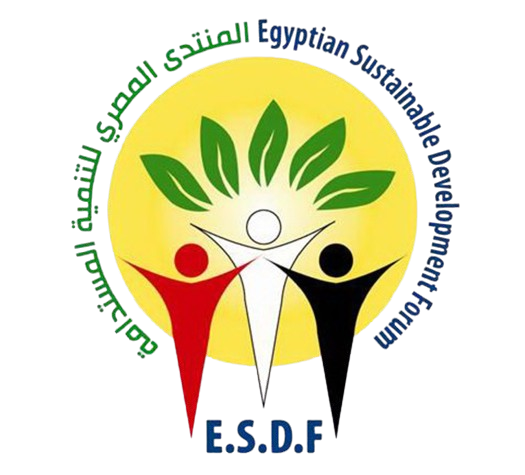Egyptian Sustainable Development Forum Supports Transition to Environmentally Friendly Cooling and Air-Conditioning Alternatives
Ozone Unit and ASHRAE Pyramids Workshop Calls for Adoption of Energy-Efficient Technologies
As part of national efforts to advance sustainable development principles and reduce harmful emissions associated with cooling and air-conditioning activities, the Egyptian Sustainable Development Forum (ESDF) participated in a workshop organized by the Ozone Unit of the Ministry of Environment in cooperation with ASHRAE Pyramids, under the title “Raising Awareness on the Importance of Transitioning to Modern, Environmentally Friendly and Energy-Efficient Alternatives in Cooling and Air-Conditioning.”
The workshop, held in Cairo on October 27, 2025, was part of a series of events supporting Egypt’s national direction toward adopting advanced technologies with high energy efficiency that mitigate global-warming emissions, in line with Egypt’s commitments to the Montreal Protocol and the Kigali Amendment.
The event brought together a distinguished group of experts and representatives from ministries, public authorities, civil society organizations and companies operating in the cooling and air-conditioning sector. The ESDF was one of the key civil-society participants in the technical discussions on pathways toward environmentally friendly systems. In their interventions, ESDF representatives emphasized the importance of raising public and institutional awareness of the environmental impacts of traditional cooling and air-conditioning technologies, as well as the vital role of civil society in promoting sustainability culture and supporting a just transition toward safe and energy-efficient alternatives.
The workshop featured six main sessions covering various technical and regulatory aspects related to the transition to modern alternatives in this critical sector.
In the opening session, Dr. Ezzat Lewis, Head of the Ozone Unit, stressed that the meeting is part of the state’s ongoing efforts to implement its international commitments to protect the ozone layer, highlighting the importance of cooperation among government, private sector and civil society to achieve the desired shift toward sustainable alternatives. The second session reviewed national obligations under the Kigali Amendment to the Montreal Protocol.
During this session, participants examined Egypt’s efforts to reduce the consumption of HFCs used in cooling and air-conditioning, one of the most potent greenhouse gases, and reaffirmed that Egypt’s transition to safe alternatives represents not only an environmental commitment but also an opportunity to enhance the competitiveness of the national industry amid the global shift toward low-emission products.
In the third session, representatives from the Ministry of Electricity and Renewable Energy presented ongoing efforts to improve energy efficiency in cooling and air-conditioning appliances, which account for a significant portion of household and commercial electricity use. Discussions addressed the National Energy Efficiency Strategy, consumer awareness on energy-saving appliances and the importance of supporting local industry to produce devices that meet international standards.
The fourth session focused on alternative technologies to substances regulated under the Montreal Protocol, including the development of updated cooling and air-conditioning codes and a technical guide for evaporative systems as an effective solution to reduce energy consumption. The session also showcased the EGYPRA Project, which promotes low-impact alternatives through training and technical support, aiming to strengthen national capacities in this field.
The fifth session addressed the regulatory role of the General Organization for Export and Import Control (GOEIC) in the qualitative inspection of imported refrigerants and gases to ensure compliance with Egyptian environmental standards and efforts to prevent the entry of non-compliant substances that could harm the ozone layer or climate.
Meanwhile, the sixth session highlighted the efforts of the Egyptian Organization for Standardization and Quality (EOS) in setting new standards for refrigerators and air-conditioning systems based on eco-friendly alternatives, demonstrating how these standards enhance appliance efficiency, reduce energy consumption and stimulate industrial transformation toward sustainable products.
Through its participation in this workshop, the Egyptian Sustainable Development Forum reaffirms that the transition to environmentally friendly cooling and air-conditioning alternatives is not only a technical challenge but also a societal one, requiring heightened public awareness and integration of roles among government institutions, the private sector, and civil society. The Forum further stresses that adopting such alternatives contributes to reducing Egypt’s carbon footprint, advancing the goals of the National Climate Change Strategy 2050, lowering energy costs, and improving air quality.

